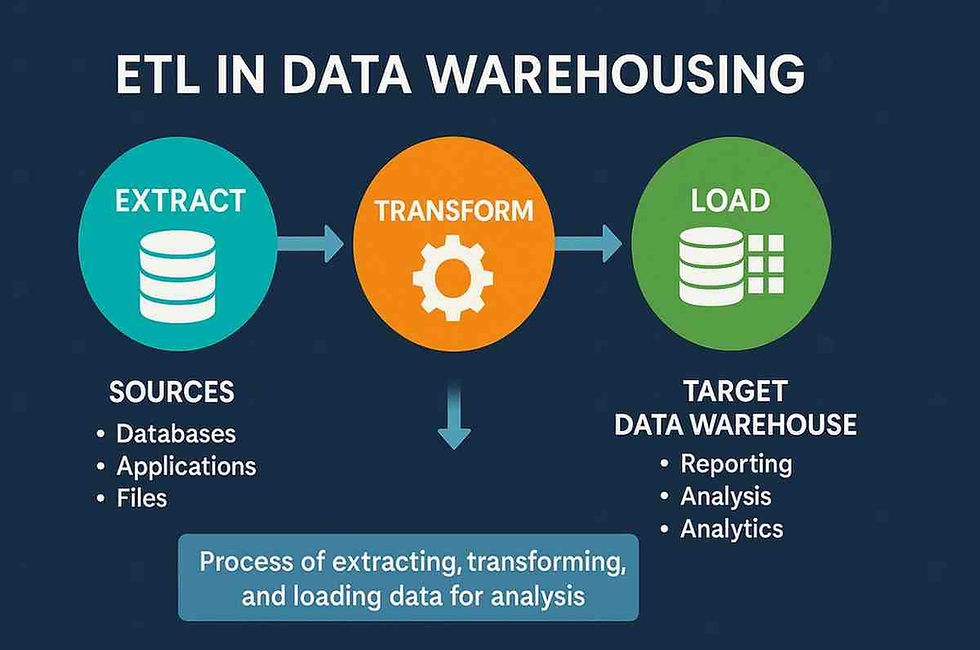Guide to Becoming an Automation Software Tester
- Gunashree RS
- Sep 11, 2024
- 7 min read
Introduction
In today's competitive software industry, automation testing has become a vital component in maintaining software quality. With the increasing complexity of software systems and the need for frequent releases, manual testing alone is no longer sufficient. Enter the automation software tester, a role that leverages technology and tools to execute automated tests, speeding up the process and ensuring higher accuracy.
An automation software tester uses automated scripts to run tests repeatedly, allowing for continuous testing during the development process. This role is essential in agile environments where fast feedback is crucial, helping teams to detect bugs early, improve code quality, and deliver better products to the market.
In this comprehensive guide, we will explore the responsibilities, benefits, limitations, tools, and best practices associated with being an automation software tester. Whether you're a beginner or looking to enhance your skills, this article covers everything you need to know about automation testing and how to excel in this field.
What is an Automation Software Tester?
An automation software tester is a quality assurance (QA) professional who designs, develops, and executes automated tests to validate the functionality, performance, and reliability of software applications. The goal is to ensure that software behaves as expected and meets the required standards before being released to the market.

Unlike manual testers, who execute test cases manually, automation testers write scripts using tools such as Selenium, Appium, Devzery or Cypress to automate repetitive tasks. Automation testing is ideal for large projects with many test cases or when certain tests need to be run frequently, like regression tests.
Automation software testers also work on:
Developing and maintaining automation frameworks
Writing test scripts to automate end-to-end tests
Analyzing and reporting test results
Collaborating with development teams to ensure seamless integration of test scripts into CI/CD pipelines
When to Use Automation in Software Testing
Automation testing isn’t a one-size-fits-all solution. It’s most beneficial in specific scenarios:
1. Repetitive Tests
Automating repetitive tests, such as regression tests or smoke tests, is ideal for reducing human errors and speeding up the testing process.
2. Large Test Suites
In large-scale projects with thousands of test cases, running manual tests can become labor-intensive. Automation enables faster execution and more comprehensive coverage.
3. Data-Driven Testing
When tests need to be repeated with different data sets, automation allows you to execute the same test case multiple times with varying inputs, improving efficiency.
4. Cross-Browser Testing
Automation allows running tests on multiple browsers and operating systems, ensuring compatibility across platforms without manual intervention.
5. Continuous Integration/Continuous Delivery (CI/CD)
Automation plays a key role in CI/CD pipelines by enabling teams to run tests automatically whenever new code is committed, providing immediate feedback on potential issues.
Difference Between Manual and Automated Testing
Manual Testing:
Execution: Tests are run manually by QA professionals.
Time Consumption: Takes longer due to human intervention.
Suitability: Best for exploratory, usability, and ad-hoc tests that require human intuition and insights.
Scalability: Difficult to scale for large projects with many test cases.
Automated Testing:
Execution: Uses scripts to automatically run test cases.
Speed: Faster and more efficient for repetitive tasks.
Suitability: Best for regression, smoke, and performance testing, where consistency and speed are key.
Scalability: Easily scalable for large test suites and multiple environments.
Benefits of Being an Automation Software Tester
Automation software testers offer several key advantages over manual testers, particularly in agile and fast-paced environments. Here are the main benefits:
1. Speed and Efficiency
Automation allows you to run thousands of tests in a fraction of the time it would take to execute them manually. Automated tests can be triggered automatically as part of the build process, ensuring that the application is tested regularly.
2. Increased Test Coverage
Automation testers can create and execute a vast number of test cases across different browsers, platforms, and devices, leading to more comprehensive test coverage.
3. Improved Accuracy
Automation eliminates human error, ensuring that tests are executed consistently every time. This improves the accuracy and reliability of test results.
4. Cost Savings
While the initial setup of an automation framework requires time and investment, it significantly reduces long-term costs by automating repetitive tests and catching defects earlier.
5. Early Detection of Bugs
Automated tests can be run frequently, even during early stages of development. This allows teams to identify and resolve bugs before they become major issues.
6. Reusability
Once written, automation scripts can be reused across different projects or multiple test cycles with little or no modifications.
Limitations of Automation Testing
While automation testing offers numerous benefits, it is not without limitations:
1. Initial Setup Cost
Setting up an automation framework, writing test scripts, and maintaining the system requires significant time and effort upfront.
2. Maintenance
Automation scripts need to be regularly updated and maintained as the application evolves. Any changes to the UI or functionality may require updating the scripts.
3. Limited to Predictable Tests
Automation works best for predictable and repetitive tasks. Exploratory and ad-hoc testing still require human intervention and cannot be fully automated.
4. Requires Programming Knowledge
Automation testers need to have a solid understanding of programming languages and scripting, which may not be suitable for all QA professionals.
Common Automation Testing Tools
There are many tools available to support automation software testers. Here are some of the most popular ones:
1. Selenium
An open-source tool for automating web browsers. Selenium is highly flexible and supports multiple languages, including Java, C#, and Python. It is widely used for web automation.
2. Appium
Appium is an open-source tool used for automating mobile applications on Android, iOS, and Windows. It supports native, hybrid, and mobile web applications.
3. Cypress
Cypress is a modern test automation tool specifically designed for web applications. It provides a fast and reliable testing experience, offering real-time reloading and debugging.
4. TestComplete
TestComplete is a commercial automation tool that supports both web and desktop applications. It allows testers to write scripts in multiple languages and provides robust features for test management.
5. Playwright
Playwright is an open-source testing framework that allows you to automate browser actions across multiple platforms. It is particularly useful for testing modern web applications.
Best Practices for Automation Software Testers
Here are some of the best practices every automation software tester should follow:
1. Start Small
Begin automation by targeting the most critical and repetitive test cases. As you gain experience and confidence, gradually expand your test coverage.
2. Use Data-Driven Testing
Leverage data-driven frameworks to run the same test with different inputs, ensuring that your automation is scalable and reusable.
3. Integrate with CI/CD
Ensure that your automation tests are part of your CI/CD pipeline. This allows the tests to be run automatically whenever new code is pushed, providing fast feedback to the development team.
4. Prioritize Tests
Focus on automating high-impact test cases first, such as regression and smoke tests. Ensure that the most critical features are covered early in the automation process.
5. Keep Scripts Simple
Keep your test scripts as simple as possible. Complex scripts are harder to maintain and debug, leading to more failures.
6. Review and Maintain Regularly
Automation scripts should be reviewed regularly to ensure they remain up-to-date with application changes. Outdated scripts can result in false positives or failed tests.
FAQs
1. What is an automation software tester?
An automation software tester is a QA professional who creates and executes automated tests to validate software quality, improve test coverage, and speed up the testing process.
2. What is the difference between manual and automation testing?
Manual testing involves executing tests manually by QA testers, whereas automation testing uses scripts and tools to automate the process, improving speed and accuracy.
3. Why is automation testing important?
Automation testing is important because it saves time, increases test coverage, reduces human error, and provides fast feedback on software quality during the development process.
4. What tools are used by automation software testers?
Common tools include Selenium, Appium, Cypress, TestComplete, and Playwright. Each tool is suited for different types of applications, such as web, mobile, or desktop testing.
5. When should I use automation testing?
Automation testing is ideal for repetitive tests, large test suites, data-driven tests, and continuous integration scenarios where fast feedback is required.
6. Can automation replace manual testing?
No, automation cannot completely replace manual testing. While automation handles repetitive tasks efficiently, manual testing is still required for exploratory and usability tests.
7. What skills are required for an automation software tester?
An automation tester needs programming skills, knowledge of testing tools, a strong understanding of the software development lifecycle, and analytical abilities to design effective test cases.
8. How do I become an automation software tester?
To become an automation tester, start by learning a programming language (e.g., Java, Python), familiarize yourself with automation tools like Selenium or Appium, and practice writing test scripts.
Conclusion
In a fast-paced development environment, the role of an automation software tester is indispensable. By using automated testing tools, QA teams can execute thousands of test cases in a fraction of the time, ensuring faster feedback and higher software quality. Whether you’re just starting out or looking to advance in this field, mastering automation testing will undoubtedly enhance your career prospects and improve your team's ability to release high-quality software.
Key Takeaways
Automation software testers create and execute automated tests to improve efficiency and test coverage.
Automation saves time, increases accuracy, and provides early bug detection.
Best practices include using data-driven tests, keeping scripts simple, and integrating with CI/CD.
Common tools include Selenium, Appium, Cypress, TestComplete, and Playwright.
Automation testing is ideal for repetitive, cross-platform, and regression testing but cannot fully replace manual testing.




Comments